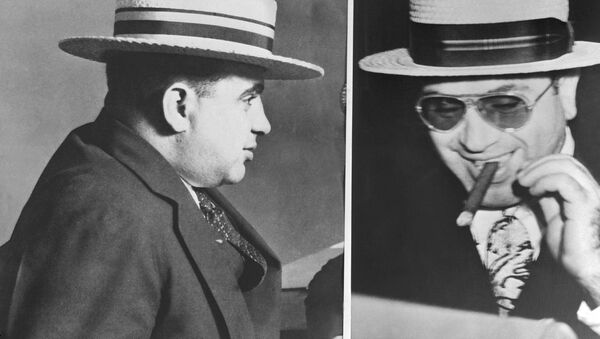Muhammad Al-Massari is an exiled Saudi physicist and political dissident.
On Thursday 12th January, on a quiet street in northwest London, came the insistent bang on the door of bailiffs. Al-Massari was evicted from his home.
Tax payable on assassination plot profits — £650k property to be sold to meet tax liability https://t.co/xGqZjbyPWN pic.twitter.com/sjujRr6soD
— NationalCrimeAgency (@NCA_UK) July 14, 2016
The outcome is the latest turn in a sensational case of international subterfuge, extremist campaigning and conspiracy to murder.
The UK National Crime Agency (NCA) is tasked with tackling serious organized crime.
They allege that Mr. Al-Mansari was part of a conspiracy, backed by the late Libyan dictator Colonel Gaddafi, to assassinate the then Saudi Crown Prince Abdullah.
Crown Prince Abdullah was the second most powerful man in the Middle Eastern kingdom after his half-brother King Fahd. He went on to become King Abdullah, succeeding to the throne in 2005, after which he died in 2016, aged 90.

Specifically, Al-Massari is accused of accepting large cash payments between 2003 and 2004, to help Libyan agents find Saudi exiles willing to return to their country and fire a missile at Prince Abdullah.
However, the UK authorities were not able to construct a strong enough criminal case against Al-Massari.
Instead, using similar tactics utilized by the FBI against US mobster Al Capone in the 1930's, the NCA went after their target using tax powers.
In a statement, the NCA said:
"The NCA's Civil Recovery and Tax team's original investigation into the tax affairs of Al-Massari identified that between 2003 and 2004 he received significant sums in cash, allegedly as payment for his involvement in a conspiracy to assassinate the then Saudi Crown Prince Abdullah. The team established a tax liability of £595,841.24 (US$724,245), including penalties, and a claim for the debt was issued on 3 July 2015."
Under the Proceeds of Crime Act, the NCA issued a claim for possession of Al-Massari's house in February 2016, to pay off the debt.
Possession of the property involved a lengthy legal battle. Here's how it unfolded #ProceedsOfCrimeAct https://t.co/pRDPGBJXwJ pic.twitter.com/3P01Twu5XV
— NationalCrimeAgency (@NCA_UK) January 12, 2017
Mr. Al-Massari has lived in London since seeking asylum in the UK in 1994. While living in London he ran a website that showed videos of suicide bomb attacks in Iraq against British soldiers with jihadist messages quoting Osama bin Laden.
Mr. Al-Massari fought deportation in 1996 and further in 2005, the UK government sought to have him deported on the grounds of encouraging radicalization in the UK, but was unsuccessful.
Mr. Al-Massari defended the videos depicting killings of British troops he published on his website.
Speaking in 2005, he said:
''I have no problem with that because they are with the occupation forces. I think the people have the right to see it and the people who made it have the right to do it.''
The NCA's seizure of Al-Massari's house is being seen as a significant victory for the agency.
Stephanie Jeavons, deputy director of NCA's economic crime command, said:
"Few people realize that the NCA has the power to disrupt criminality through the use of tax powers as well as through civil proceedings. These are very powerful weapons in our arsenal which do not necessarily require an existing conviction."


